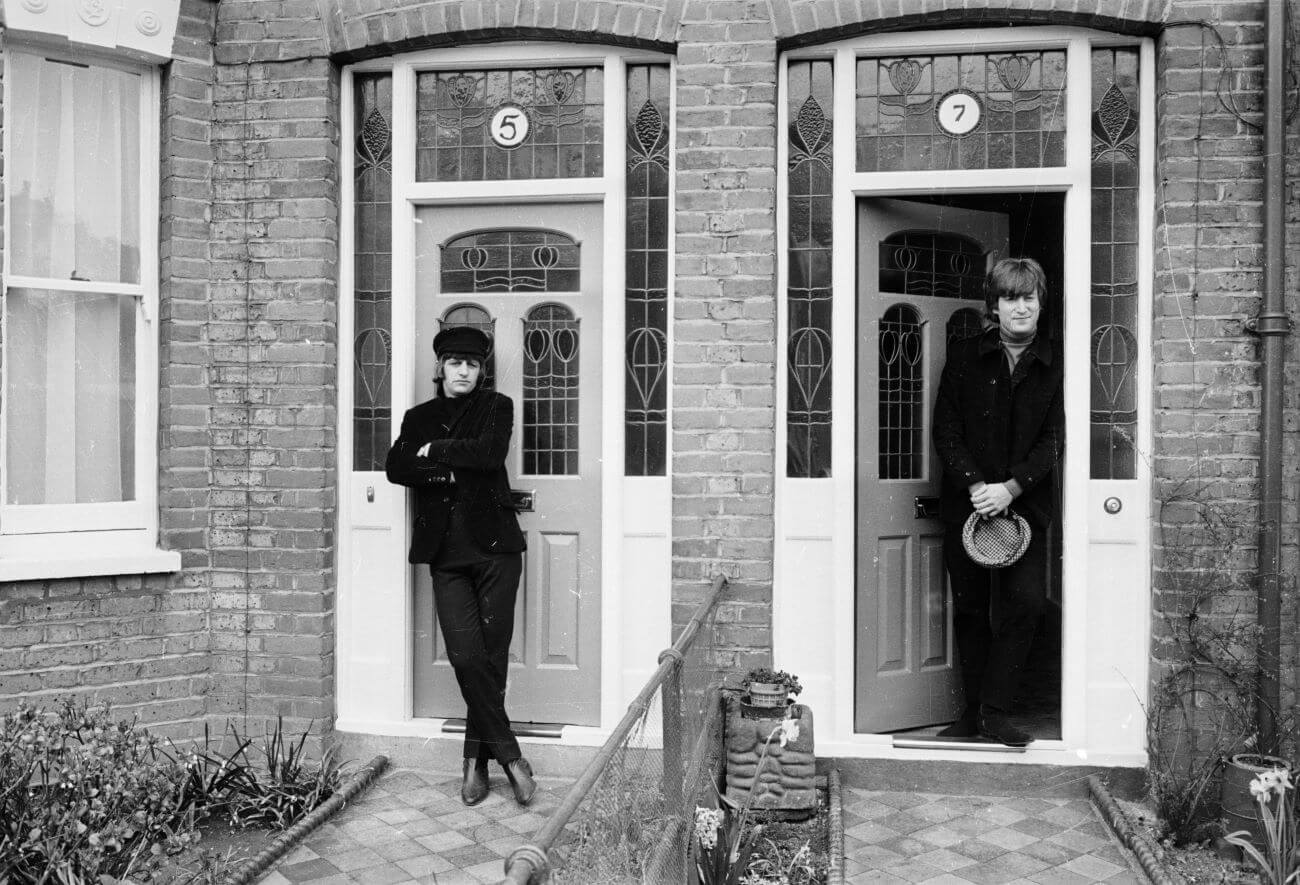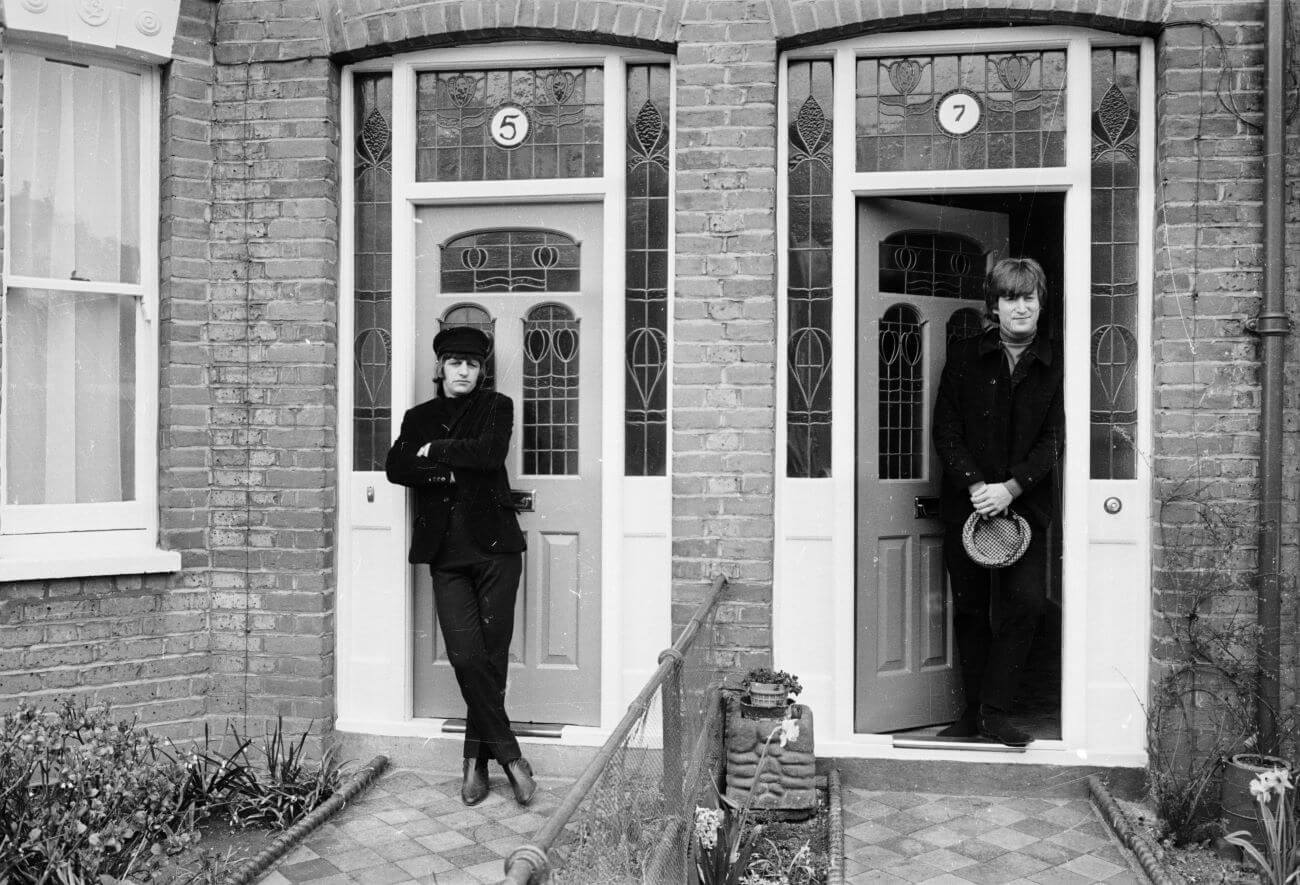
John Lennon Worried Ringo Starr Would ‘End Up Poor’ When The Beatles Broke Up
When The Beatles broke up, John Lennon was most worried about Ringo Starr. The other three members of The Beatles enjoyed a steady stream of royalties from their songwriting. Starr, who had far fewer solo songwriting credits, was in a different position. While he had made plenty of money with the band and would continue to in his solo career, Lennon worried about his bandmate’s career.

The Beatles’ drummer felt lost when the band broke up
Starr dedicated nearly a decade of his life to The Beatles. When they broke up, he wasn’t sure what to do with himself. He felt both angry and profoundly lost.
“I was lost for a while,” he said, per the book Ringo: With a Little Help by Michael Seth Starr. “Suddenly the gig’s finished that I’d been really involved in for eight years. ‘Uh-oh, what’ll I do now?’”
The breakup did not come as a shock, but it still sent him reeling. Starr, more than any of the other former Beatles, held out hope for a reunion.
John Lennon worried about Ringo Starr
Lennon was concerned about Starr after the band broke up. He worried that Starr, for all his success with the band, would struggle to find work in the aftermath of the split.
“I remember John talking about Ringo when we were in Tittenhurst Park and he said, ‘I don’t want Ringo to end up poor, having to play the Northern nightclubs,’” journalist Ray Connolly said.
Lennon imagined a bleak future for his friend and bandmate, especially after he enjoyed atmospheric success in The Beatles.
“Because the worst thing in the world for an ex-pop star in England is to end up playing Bradford or Darlington, the northern nightclubs, because they are really awful places,” Connolly said. “The people eating chips and scampi while you’re trying to be heard.”
John Lennon could have been more publicly supportive of Ringo Starr
Like the rest of The Beatles, Starr immediately got to work on his solo career after the band broke up. He released the album Sentimental Journey in 1970, and it received tepid reviews.
“Sentimental Journey may be horrendous, but at least it’s classy. Or is it?” Greil Marcus wrote in a review for Rolling Stone.
Lennon, who worried about Starr’s career, could have supported him by praising the project. Instead, he called the album embarrassing. He was happy Starr’s second album, Beaucoups of Blues was better, but couldn’t help getting in a dig about the first album.
“I wouldn’t buy any of it, you know,” he told Rolling Stone in 1971, adding, “I think it’s a good record, and I was pleasantly surprised to hear ‘Beaucoups of Blues,’ that song you know … I was glad, and I didn’t feel as embarrassed as I did about his first record.”
Starr and Lennon were close, even after the band broke up. If Lennon truly worried about Starr and wanted to see him succeed, he should have supported his work. Instead, his ego and competitiveness got in the way. He couldn’t set these feelings aside to help a friend, even if he worried Starr would end up playing to uninterested nightclub crowds for the rest of his life.


